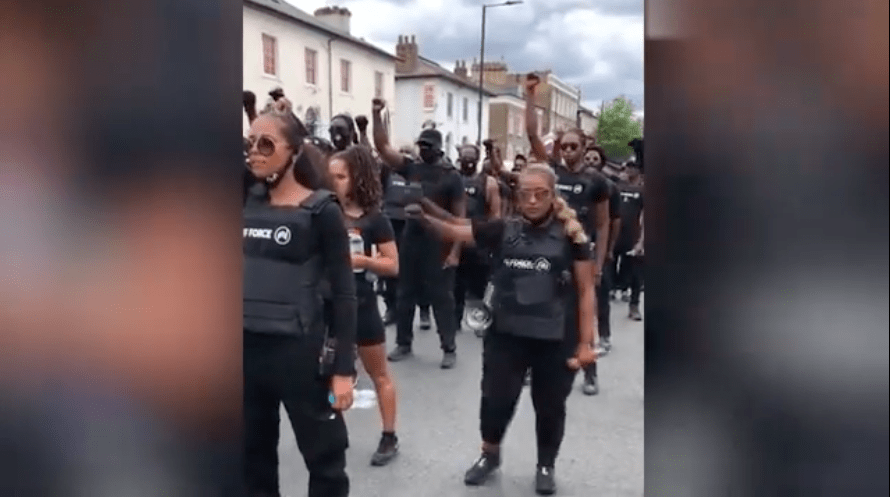Until relatively recently I was under the impression that preventing people breaking the law was the primary job of a police officer. But is this always the case? Or is tackling crime sometimes substituted for a form of morality-based policing?
The protest for reparations in Brixton last Saturday – and the reaction of the police – is an excellent example of what morality policing looks like in practice. The event – a gathering of considerably more than 30 people in an apparent breach of the Health Protection (Coronavirus) regulations – was not, it would seem, authorised by the police. It was instead a planned protest with an arranged policing plan and conditions on attendance (including an 8pm curfew). As people gathered in Brixton, large numbers of police officers watched on, with little attempt made to enforce the law. Afterwards, police thanked protesters for a ‘largely peaceful’ event where only three arrests were made for affray, assault on an emergency service worker, and racially aggravated assault.
This laissez faire attitude to enforcement is not the new normal. The Met is still encouraging citizens to report ‘large gatherings of people obviously from different households’, and in fact one of the conditions placed on the event was that it end by 8pm so that officers would be able to identify – and presumably nab – people returning from other unauthorised gatherings.
This sort of disparity in the application of the law is a feature, not a bug. Leeway is given to causes deemed worthy and moral, while those viewed as wrong are held to the harshest standard possible.
If there were any confusion remaining on this point, we can look at the treatment of the group at the same protest dressed in matching black ‘FF Force’ combat vests. Clearly some people found these protesters intimidating, although rather more thought the attempt at military-style drill slightly cringeworthy. And yet it seems very unlikely that anyone involved will be charged with wearing political uniforms under the Public Order Act 1936. The leeway was not shown to members of Britain First in the recent past; wearing a branded fleece was ‘intimidating’, but perhaps the same cannot be said of what appeared to be branded stab vests.
Now at this point it’s worth clarifying a few things. The 1936 Public Order Act is, in my view, a bad law. But if it exists and is still used then it should be applied evenly. The same might be said by others about the coronavirus regulations. Whether or not we think limits on gatherings should be imposed, there is no particular rationale for exempting some groups based on political desirability. The virus spreads among good people just as easily as it does among bad.
The problem with morality policing is that while discretion in applying the law can avert short-term trouble – and probably did so last weekend – it stores up bigger problems for the future.
The core tenet of such a system is that all are not equal before the law; some are more worthy than others and can be exempted from the usual rules. Besides the basic and troubling issue of whose discretion will determine which causes are worthy of exemptions, such discretion makes it difficult to guess in advance which laws will be enforced, and how they will be so. The rule of law becomes the rule of politics, and the legitimacy of the police is diminished as they become political actors. This is obviously costly in and of itself, but a bigger problem in the short-term is that setting precedents for non-enforcement is an open invitation to other groups to try their hand.
At this point you may be wondering whether normalising militarised protests because the police are anxious at being perceived to be unsympathetic to a good cause is a particularly sensible idea. It is not.
It is possible that we will be lucky and nothing further will come of this. But here’s one entirely possible outcome of the last week’s events: at some point, a suitably low-wattage bulb in a far-right organisation has the following idea: why don’t we try that? The police, fulfilling their roles as enforcers of the moral order, will then come down on the protest like a ton of bricks, highlighting the existence of parallel rules, raising tensions further, and giving the far-right recruiting material for years to come.
Cause-based discretionary application of the law is an invitation to trouble-makers to see how far they can push things, and a trap for the foolish who may naively believe they will receive the same generous treatment as those currently in favour with the political in-crowd. The best way to avoid this sort of eminently predictable problem is to simply enforce the rule as written.







Comments